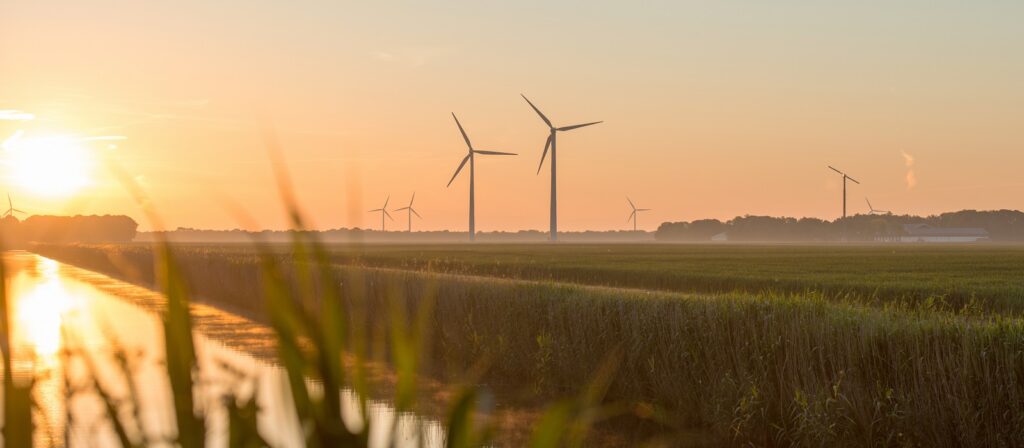ICMIF Supporting Member Aviva Investors, the asset manager of Aviva plc (‘Aviva’), has called for the creation of a global transition plan for finance at a new Bretton Woods conference in 2024 to reform the global financial architecture and mobilise private capital to avert a climatic catastrophe.
Failure to do so would have unprecedented environmental, social and economic consequences as the planet warms, including the potential collapse of the financial system before the end of the century, Aviva Investors said in a report to coincide with the COP27 UN climate talks in Egypt. Insurers and reinsurers are already raising premiums in the face of dramatic rises in loss events. In a world without insurance to manage risk and offset losses, the entire financial system could become unworkable.
According to the report, only private finance can deliver the scale of investment needed to limit global temperature rises, but the focus of financial reform to date has been on public or multilateral institutions. That means too much capital continues to flow towards activities that exacerbate climate change, while projects to resolve loss and damage, or to fund climate mitigation and adaptation, lack sufficient resources.
Mark Versey, Chief Executive Officer, Aviva Investors, said: “The global economy and financial system are currently financing their own destruction because the global financial architecture is not fit for purpose. We need key institutions in the architecture to create their own global transition plans for finance and to add climate considerations to the heart of their agenda. This will accelerate delivery of the Paris Agreement and the United Nation’s Sustainable Development Goals (SDGs).
“There is an estimated USD 510 trillion in global financial assets held by financial corporations. These institutions are committing to net zero at scale, but they cannot solve the problem on their own. We are advocating bold change that would include the Bretton Woods institutions, the World Bank and the IMF, as well as all the regulators and supervisors of the asset management, banking and insurance industries. Finance needs proactive net zero leadership from its global regulators and standard setters if we are to evolve an effective paradigm for the next 80 years.”
Steve Waygood, Chief Responsible Investment Officer, Aviva Investors, said: “Financial market participants are hugely influenced by their regulatory regimes and respond to signals from their supervisors. A clear focus on managing and mitigating climate risk, and on delivering a global transition plan for finance, will ensure those signals incentivise and support financial institutions. It will in turn encourage them to allocate capital towards companies committed to the transition and mobilise finance in support of mitigation and adaptation in countries around the world, especially in developing economies. Without changing the regulatory regimes, the risk is that those actions will remain a second tier priority.”
Scale and speed required
To deliver the transition to net zero in the timescales required by the scientific consensus requires a transformation of immense scale and speed. Temperature trajectories indicate the world is on course for a rise of 2.8 degrees by 2100. The world has coalesced around the collective goal of net-zero greenhouse gas emissions by or before 2050 to limit warming to 1.5 degrees centigrade above pre-industrial averages, with over 90 per cent of global GDP covered by some sort of net zero target. Physical impacts of warming in excess of two degrees will threaten the lives and livelihoods of billions of people, nature and global security.
Welcome action has been taken by supervisors, regulators, policymakers and private sector, with the development of practices and frameworks to assess and manage climate and sustainability risk, including the Glasgow Financial Alliance for Net Zero (GFANZ). These are steps in the right direction, but the reform of the whole system is needed for the exponential impact required to achieve climate goals.
Aviva Investors Report Recommendations in summary:
The Aviva Investors report recommends all institutions that oversee global finance – including the IMF, World Bank, FSB, IOSCO, IAIS and the Basel Committee – should:
- Create a 2050 net zero transition plan for their work
- Refresh organisational mandates to make climate a central focus
- Report annually on net-zero progress – of the institution and those it supervises
- Collaborate with others in the global financial architecture to create an overarching transition plan
- Convene a summit to agree and begin implementing reforms to tackle the climate emergency around the 80th anniversary of Bretton Woods
You can read the full report here.
Mark Versey spoke at the ICMIF Centenary Conference in Rome last month in a session on transitioning to a net zero future. In the session, Versey presented his thoughts on what a net-zero future looks like and shared Aviva Investors’ roadmap to achieving its commitments. He also explained how his organisation’s holistic approach to ESG considerations has helped it to integrate accelerated solutions into existing frameworks and portfolios.
After the Conference, Versey said “With the ongoing focus and dedication of our brilliant people, I am confident we will continue to make a positive difference through this purpose-driven work.” ICMIF members are able to watch the recording of Mark Versey’s presentation in the “Transitioning to a net zero future” session in the ICMIF Knowledge Hub.






